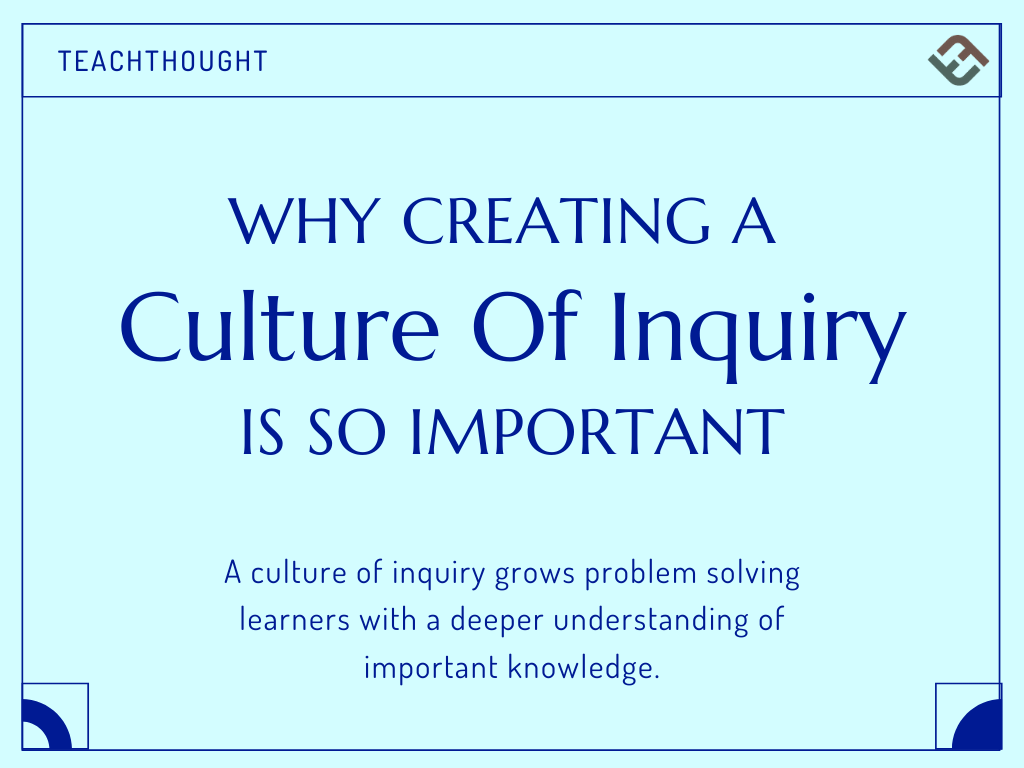
Creating A Culture Of Inquiry
contributed by Drew Perkins
Imagine yourself sitting across from a mortgage broker sometime in the early 2000’s. The economy is riding high and you’ve decided to stake out your portion of the American dream of home ownership but you’re a first-time home buyer.
Maybe you’re in your early 20’s and are finally enjoying the independence of adulthood. Or maybe you’re in your early 30’s, have worked yourself up to a middle-level management position with a decent income that’s allowing you to make some progress on those sizable student loans, but your growing family needs more space.
You’ve never been great with numbers and finances but you love the new house your realtor has assured you is in your price range. It seems like a lot of money but all the people on the other side of the table say you can easily afford it, in fact with no money down…just sign here. So sign you do, many times, many copies and documents, hastily explained at closing by the lender.

The keys are yours as is a mountain of debt and suddenly a few years later, the bottom drops out. The stock market crashes, you lose your job but not the monthly house payments. Then you lose your house, credit, and you’re in a downward spiral of hopelessness.
I often use this example to help illustrate the importance of building inquiry skills in our learners. How might things have been different if these homebuyers knew what important questions they should be asking and seeking to answer?
A culture of inquiry grows problem-solving learners with a deeper understanding of important knowledge.
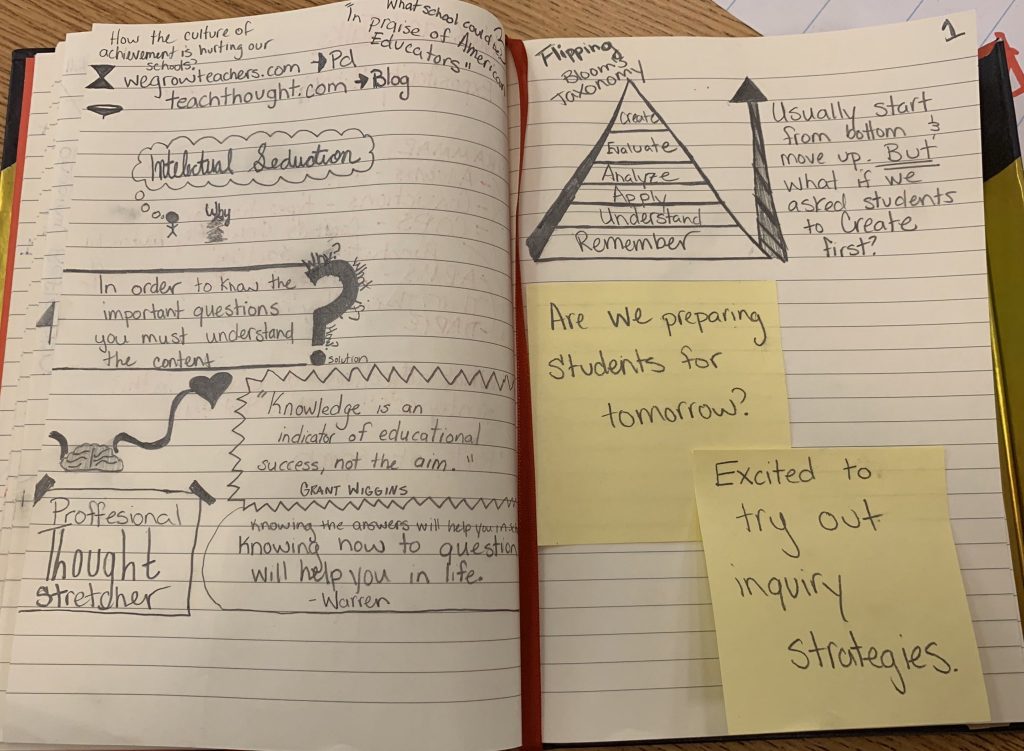
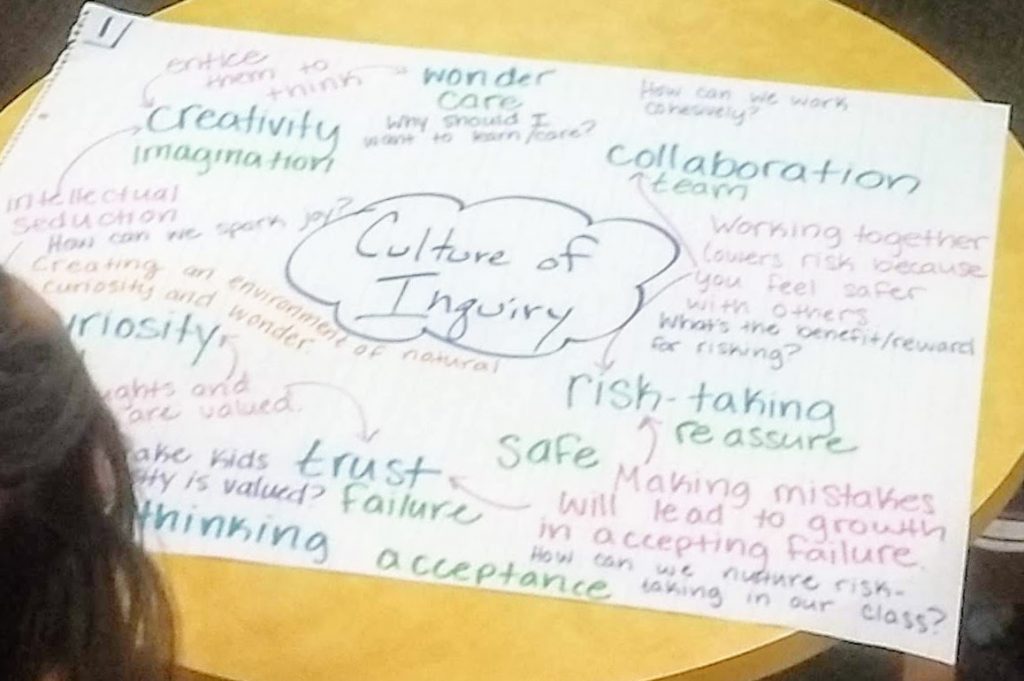
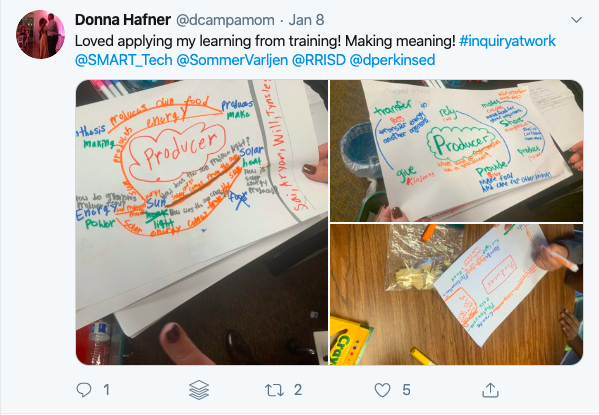
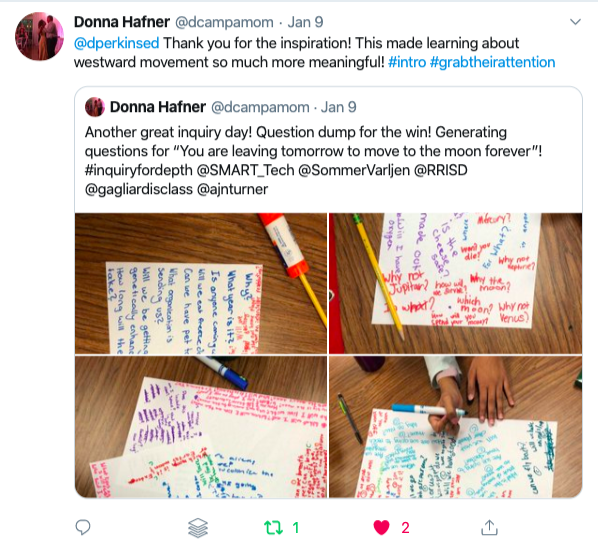
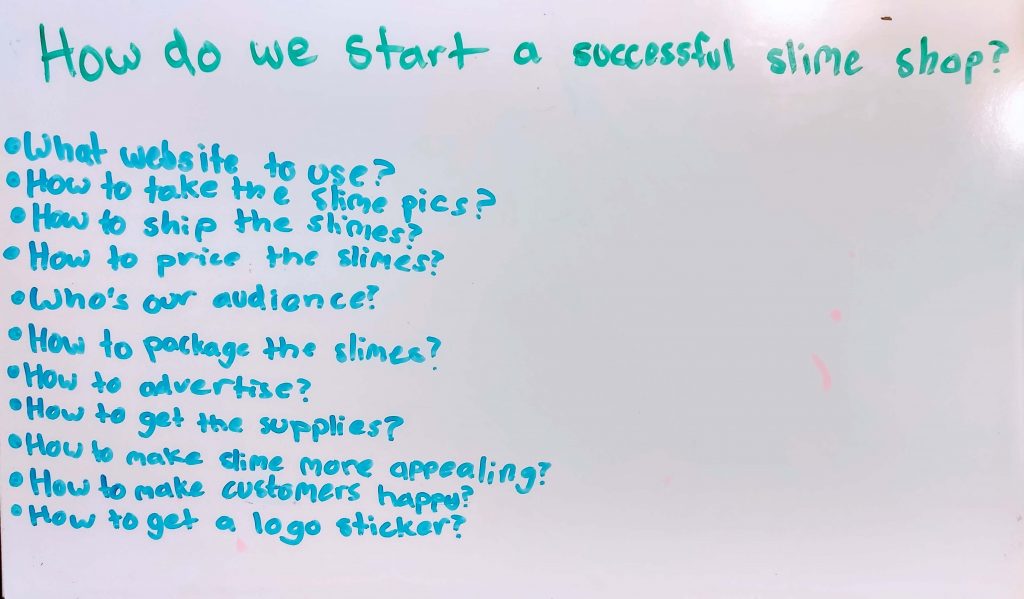
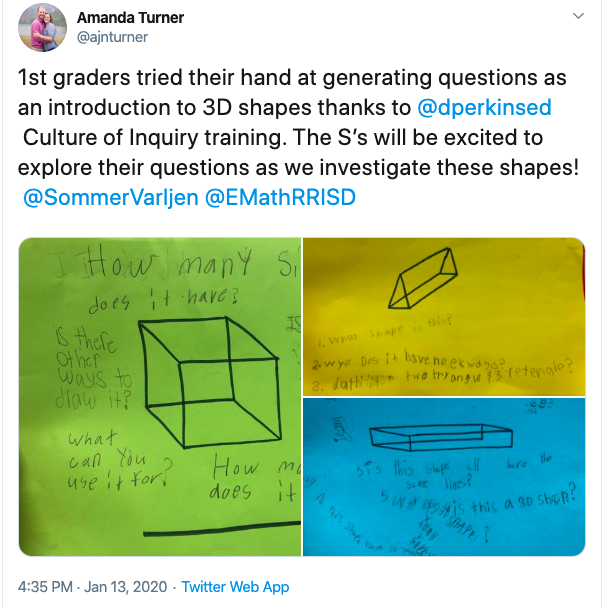
Inquiry Is A Key To Deeper Learning
Mediocre teaching loiters around the landscape of the basic levels of Bloom’s taxonomy, rarely asking learners to think critically. Some teachers extend the learning they’ve ‘frontloaded’ by asking students to apply or made something they would call a project.
The best teachers use inquiry to pull the important content and knowledge (and yes, knowledge is important!) from learners as questions by flipping Bloom’s taxonomy and starting at ‘Create,’ As students analyze, apply, and evaluate that knowledge they make multiple connections and learn it more deeply.
Not only does this approach yield deeper learning that will show up on those accountability tests most teachers worry about but it simultaneously builds inquiry skills that will better prepare them for the modern world. You know, the one beyond the reach of those accountability tests.
Creating Your Culture of Inquiry
Children and young adults learn these inquiry skills through practice. Teachers who consistently scaffold their teaching using a pull teaching dynamic build the habit of identifying what learners need to know and learn to successfully complete a challenge.
Don’t make the mistake of thinking we have to sacrifice important knowledge and content learning with inquiry learning. Looking at the above pictures of the tools, it shouldn’t be difficult to see the meaningful connections. Once you’ve pulled those questions important to you (teacher), you can teach to them and use them as the powerful tools they are.
Lean into the natural curiosity of your students, they’ll benefit from it now but they’ll really be better for it in the long run.